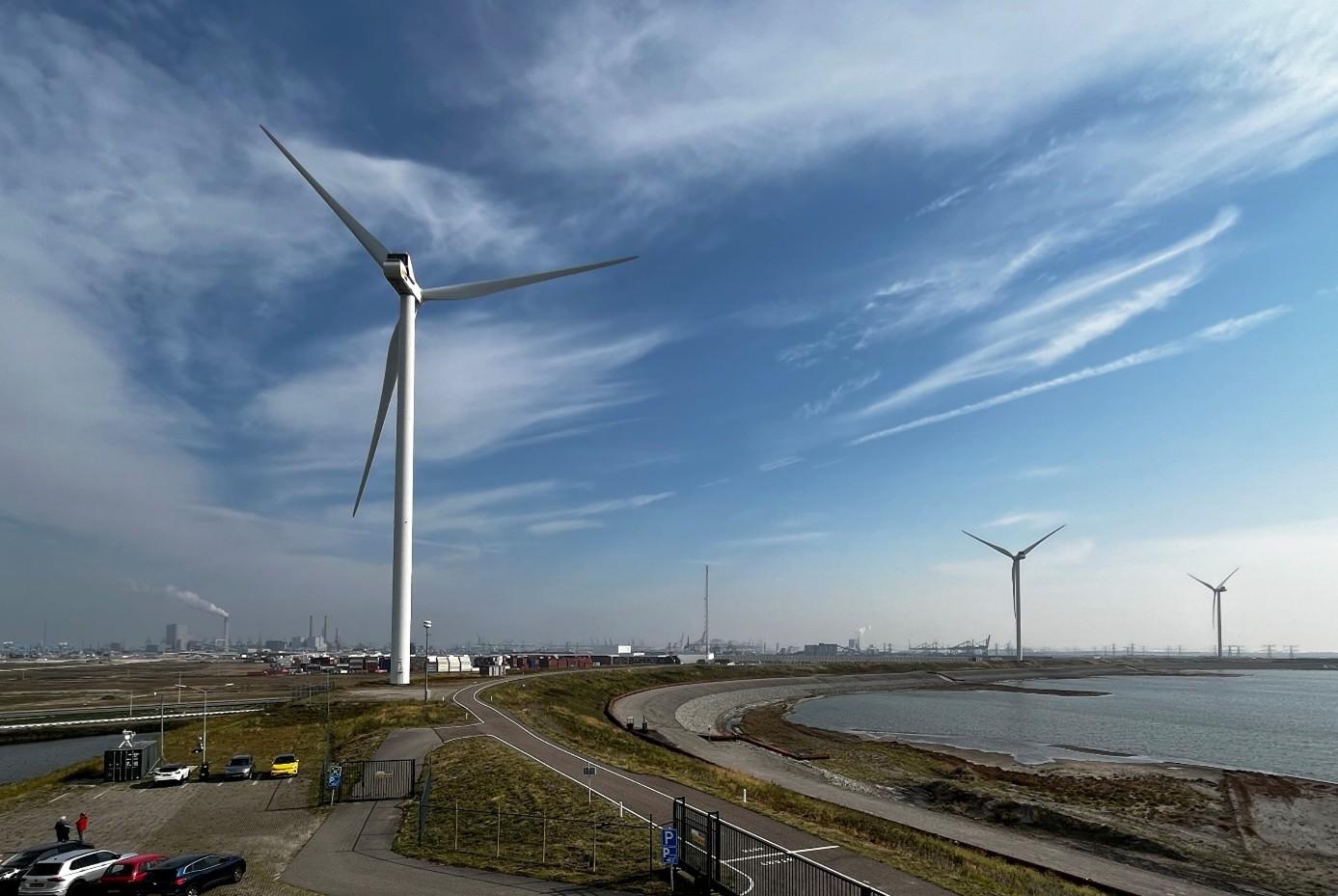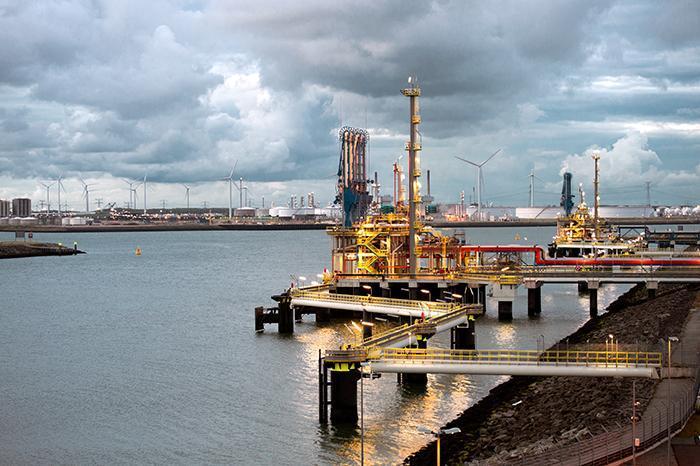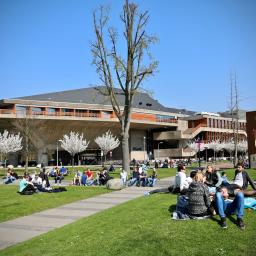
Picture by Milena Schmidt
The minor Georesources for the Future, offered by the Leiden-Delft-Erasmus Universities, provides students with an interdisciplinary perspective on the role of raw materials in the green transition. For Milena Schmidt, a third-year Political Science student at Leiden University’s The Hague campus, it turned out to be much more than just an elective. 'I wasn’t even sure what georesources were at first – now they’re central to my thesis.'
We spoke with Milena about stepping into an interdisciplinary classroom, collaborating with students from different academic backgrounds, and discovering a new academic passion along the way.
What drew you to the minor Georesources for the Future?
"I found the minor through my own research on the EduXchange website. I was particularly interested in sustainability and the energy transition, so this minor immediately caught my attention. However, I was still unsure about certain aspects, especially regarding the structure and the workload. To clarify, I reached out to the coordinator and even contacted a former student who had completed the minor.'
'Their insights helped me understand what to expect, particularly regarding the combination of technical, economic, and governance perspectives on georesources. After receiving their responses, I felt confident that this minor would be a valuable addition to my studies.'
How did the minor fit into your broader academic journey?
'The minor was a significant part of my third year. Transitioning back to my Political Science program and working on my thesis afterward was quite intense, especially since our minor ran longer than those of Leiden students. We only had a short break before jumping back into our bachelor’s coursework. However, the minor provided me with valuable knowledge that I can now incorporate into my bachelor thesis.'
'I am particularly interested in extractivism in EU energy policy and the role of critical raw materials. This is something I had already been curious about before, but the minor deepened my understanding, giving me the opportunity to explore this topic from multiple angles, including economic, technical, and political implications.'
How is the minor structured?
'The minor took place entirely at TU Delft, mainly in the Echo building and the Civil Engineering faculty. It was structured in two phases: an intensive first quarter with four full days of lectures and group work per week, followed by a more independent second quarter focused on research.'
'The first module, ‘Georesources Past and Present’, consisted of various thematic mini-lectures—topics such as oil, waste, and critical raw materials were just a few examples. ‘Political Economy of Georesources’ explored themes like global value chains, the resource curse, and the stages of production of minerals, among others.'
'Finally, ‘Present and Future of Georesources’ focused on commodities trade from a business perspective. In the second quarter, we conducted independent research in small groups, applying the knowledge from the first quarter to real-world energy and resource challenges.'
How was it working in an interdisciplinary setting?
'It was my first true interdisciplinary experience, and I found it incredibly valuable. I worked alongside students from applied sciences and technical backgrounds, which provided fresh perspectives. We all brought different skills to the table—some were more technically inclined, while others, like myself, focused on policy and governance. This created a collaborative rather than competitive environment, which I really appreciated.'
'One aspect that stood out was working with students from Applied Earth Sciences. Their technical expertise in coding and data analysis was something I have experienced to a more limited extend in my Political Science studies, and it was fascinating to see how they approached problems differently.'
'Meanwhile, my experience in governance and policy analysis allowed me to contribute in ways they might not have considered. The interdisciplinary nature of the minor encouraged us to step outside of our comfort zones and engage with new methodologies, whether it was data analysis, economic evaluation, or regulatory policy.'

Did the minor influence your plans for the future?
'Absolutely. I have applied to several master’s programs, both in and outside the Netherlands, all related to environmental policy and governance. Before this minor, I was already interested in environmental issues but wasn’t sure how to integrate them with my Political Science background.'
'The minor reaffirmed my passion for sustainability and the green transition, showing me how governance plays a crucial role in resource management and the energy transition. I am considering a master’s program at Leiden, but I am also interested in a joint Leiden-Delft industrial program, as I really enjoyed my time at TU Delft. I’m still waiting on responses, so my final decision will come later.'
Would you recommend the minor to other students?
'Yes, but the minor needs some adjustments. As a group, we suggested renaming the minor to something more descriptive, incorporating terms like ‘green transition’ or ‘sustainability’ to better reflect its content. The current title, ‘Georesources for the Future,’ is somewhat vague and doesn’t immediately convey the interdisciplinary nature of the program.'
'The minor is intensive, but you really learn a lot. You gain valuable insights into how we will deal with energy and resources in the future. In addition, it is a great opportunity to work with students from different fields - something that is becoming increasingly important in the field of sustainability.'




